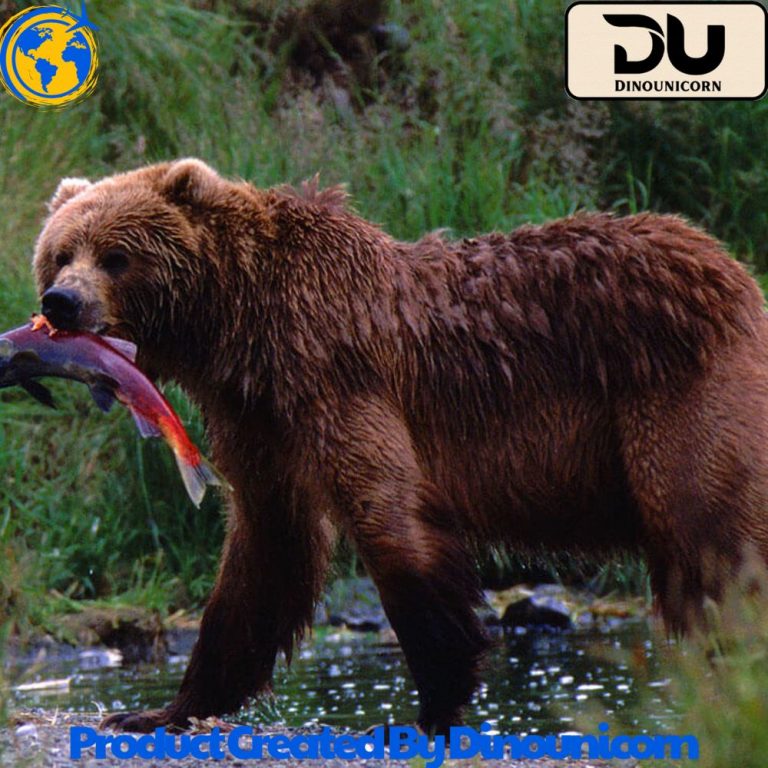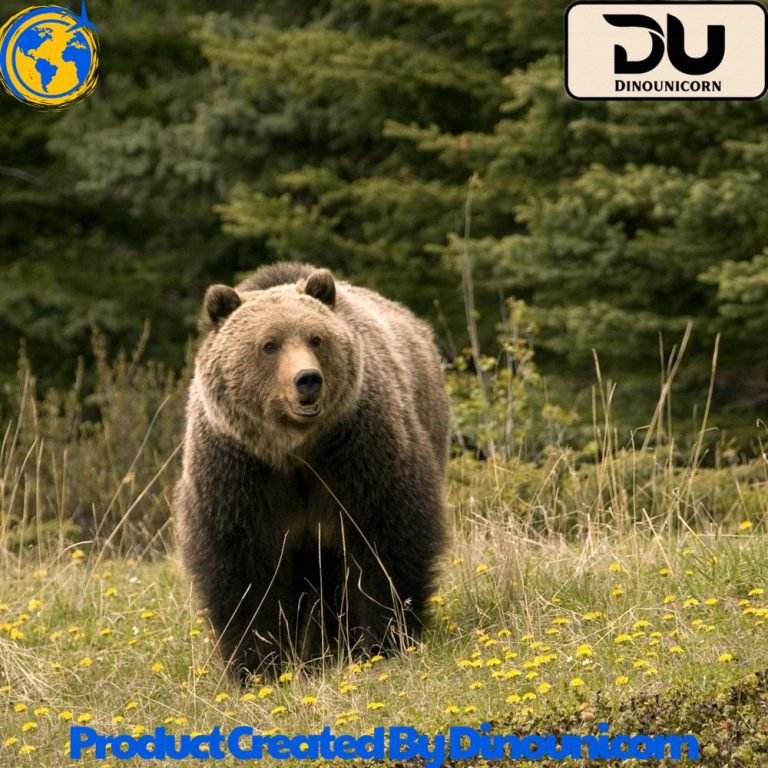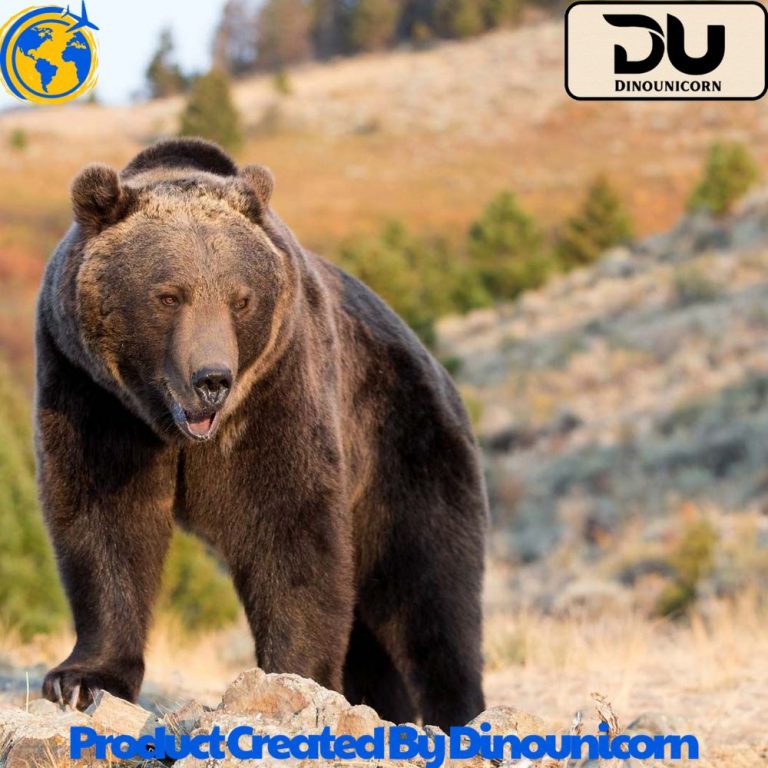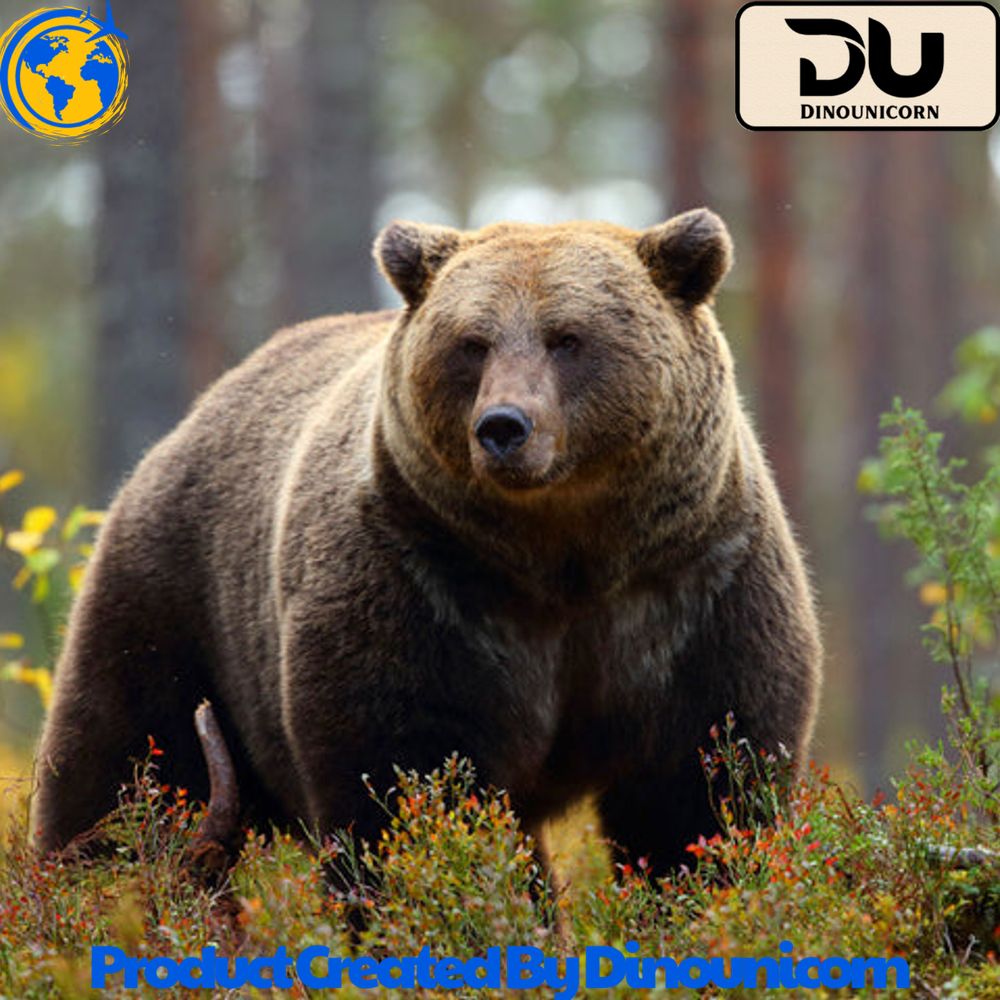Blog
What Do Bears Eat?
What Do Bears Eat? An Overview of Bear Diets
Bears are fascinating creatures with a diverse diet that can vary depending on their species, habitat, and the time of year. Understanding what bears eat is essential not only for wildlife enthusiasts but also for anyone looking to learn more about these powerful animals and their roles in the ecosystem. Bears are omnivorous, but their diet can differ significantly based on the species, environmental factors, and seasonal changes.
Understanding the Diet of Bears
Bears are known for their omnivorous nature, meaning they consume both plants and animals. Their diet varies greatly depending on their species, their environment, and the time of year. Some bears are primarily herbivorous, feeding mostly on fruits, nuts, and plants, while others may lean more towards carnivorous diets, hunting small animals, fish, and even large mammals.
The diet of grizzly bears or brown bears may include a mix of berries, roots, fish like salmon, and even the occasional mammal. On the other hand, polar bears are mostly carnivorous and primarily feed on seals and other marine mammals. Understanding these dietary preferences helps us appreciate the important roles bears play in their respective ecosystems.
What Do Bears Eat in the Wild?
In the wild, bears are opportunistic feeders, meaning they will eat whatever food is available to them. This can include a variety of natural food sources such as berries, roots, nuts, small mammals, and even larger animals in some cases. Bears also have an impressive ability to find and catch fish, particularly during seasonal fish migrations like salmon runs.
- Plants: Bears are known to feed on a wide variety of plants. Depending on the season and availability, they may consume fruits like berries, nuts, and acorns. In the spring and summer months, they may also feed on leaves, flowers, and tender grasses.
- Animals: Bears are also skilled hunters and will hunt small animals, fish, and even larger prey such as deer, if the opportunity arises. The fish they catch is particularly important in the diet of species like grizzly bears and black bears, especially during seasonal runs.
- Insects: Bears are opportunistic and will even consume insects when the need arises. This includes ants, termites, and bee larvae. Bears are famously known for their fondness of honey, though it’s typically only a small part of their diet.
Do bears scavenge? Yes, bears are known to scavenge, especially in areas where food is abundant. They will take advantage of carrion or steal food from other predators, depending on availability.

Species-Specific Bear Diets
Understanding the specific dietary preferences of different bear species is essential for wildlife enthusiasts. Each bear species has unique feeding habits and food preferences.
What Do Grizzly Bears Eat?
Grizzly bears, also known as brown bears, are omnivores and consume a wide variety of food depending on the time of year and availability. The diet of grizzly bears often includes:
- Fish: Particularly salmon, which provides a high-energy food source during spawning seasons.
- Berries: Bears are known to feast on blueberries, raspberries, and other wild berries that grow in the summer months.
- Small Mammals: Grizzly bears are capable hunters and will go after small mammals like rodents and even larger prey like deer, moose, and caribou when the opportunity arises.
During the fall, grizzly bears may feed on nuts and other foods to fatten up before winter hibernation. Understanding what grizzly bears eat in fall is essential, as they begin to consume more high-calorie foods to prepare for the winter months.
What Do Polar Bears Eat?
Unlike their cousins in the forests, polar bears are primarily carnivorous. Their diet mainly consists of:
- Seals: The primary food source for polar bears is seals, which they hunt along the ice sheets in the Arctic. They rely on the seals’ fat as a critical energy source.
- Marine Mammals: In addition to seals, polar bears will also hunt other marine mammals, including walruses when available.
- Carcasses: Polar bears have been observed scavenging carcasses of dead whales and other marine animals.
Due to their reliance on the ice and cold weather for hunting, climate change is increasingly affecting what polar bears eat and their ability to find food.
What Do Black Bears Eat?
Black bears are primarily herbivorous but will also eat animals when given the opportunity. The diet of black bears includes:
- Fruits and Berries: Black bears consume large quantities of berries, including blueberries, blackberries, and strawberries.
- Nuts and Seeds: They are also known to eat acorns, nuts, and seeds from a variety of trees.
- Insects: Black bears will also consume insects, particularly ants, bees, and other small insects, especially in the spring and summer.
If you’re curious about what do black bears eat, you can read more on Yellowstone Bear World.

What Do Brown Bears Eat?
Brown bears share many similarities in diet with grizzly bears but can also have slight differences based on their location. They typically consume:
- Fish: Like grizzly bears, brown bears also eat a significant amount of salmon, especially during the seasonal migrations.
- Fruits and Berries: They feast on various berries, including raspberries and blackberries.
- Small Mammals and Larger Prey: Brown bears will hunt small mammals and sometimes larger animals like deer, moose, or bison.
In the wild, brown bears rely on a balance of fish, berries, and small mammals to sustain them throughout the year.
What Do Bears Eat in the Wild? Seasonal Diets
What Do Bears Eat in Summer?
In the summer, food is plentiful, and bears take advantage of the abundance of berries, fruits, and insects. During this time, they focus on consuming:
- Berries: Blueberries, raspberries, strawberries, and other fruits are common.
- Fish: The availability of fish, especially salmon, during the seasonal migrations is a significant food source.
Summer is a critical time for bears to build up their fat reserves for hibernation in the winter.
What Do Bears Eat in Winter?
During the winter, most bears enter a state of hibernation. However, before hibernating, they increase their food intake to build fat reserves. Here’s what bears eat in winter:
- Fatty Foods: Bears focus on high-calorie foods like salmon, nuts, and berries to prepare for hibernation.
- Scavenging: In some regions, bears may rely on scavenging for any available food.
Despite their winter dormancy, bears need to consume large amounts of food before entering hibernation.
What Do Bears Eat in Spring and Fall?
In spring, bears begin to emerge from hibernation and are often in search of young plants, roots, and insects to rebuild their energy. During the fall, bears consume even more high-calorie foods like nuts, fish, and berries to prepare for the long winter months.
What Do Bears Eat in Captivity?
How Bear Diets Differ in Zoos and Sanctuaries
In captivity, bears are typically fed a balanced diet designed to replicate their natural food sources as closely as possible. Zoo and sanctuary bears often consume a mix of fruits, vegetables, meat, and specialized diets prepared by animal care professionals. While their diet may be controlled to ensure proper nutrition, it is still designed to mimic their wild diets.
How Bears Find Food: Foraging and Hunting
Foraging Habits of Bears
Bears are skilled at finding food through foraging. They can smell food from miles away and will forage for:
- Berries: Berries and other fruits are a favorite during the warmer months.
- Nuts and Roots: Bears are also known to dig for roots and eat various types of nuts in the wild.
Their keen sense of smell helps them locate these foods with ease.
Hunting Skills of Bears
Bears are also skilled hunters. They hunt fish, small mammals, and sometimes even larger prey. Grizzly bears and black bears are particularly skilled at catching fish, while polar bears focus on hunting marine mammals.

Interesting Facts About Bears and Their Diets
Do Bears Eat Honey? The Truth Behind the Myth
It’s a well-known myth that bears love honey, and while it’s true they will take honey if it’s available, honey is only a small part of their overall diet. Bears are more focused on high-calorie foods such as salmon, berries, and nuts.
The Role of Fish in Bear Diets
Fish, especially salmon, plays a critical role in the diet of many bear species. During the salmon spawning season, bears can consume large quantities of fish, providing them with essential fats and nutrients needed for survival.
Frequently Asked Questions (FAQ)
- What do bears eat in the wild?
- Bears eat a variety of foods, including berries, fish, small mammals, roots, and insects. Their diet depends on the species and season.
- Do bears eat fish?
- Yes, many species, including grizzly bears and polar bears, eat fish, particularly during seasonal migrations like salmon runs.
- What do polar bears eat?
- Polar bears primarily feed on seals and other marine mammals.
- Do bears eat honey?
- Bears will eat honey if it is available, but it’s only a small part of their diet.
- How do bears find food?
- Bears use their keen sense of smell to forage for food like berries, fish, and insects.
If possible, please visit dinounicorn.com or freshmilktee.com to support us.
 Skip to content
Skip to content

